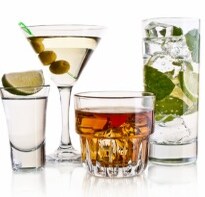It is now possible to use gene therapy in the brain to not only treat binge drinking but other substance abuse, neurological diseases and mental illnesses.
Related Articles-
Binge drinking heightens Type 2 diabetes riskStudy links heavy teen drinking to dementiaHigh cigarette tax also makes people drink lessFor the latest food news and recipes, like us on Facebook or follow us on Twitter and get the NDTV Cooks app for Android or iOS.
Advertisement
Advertisement
Related Articles-
Binge drinking heightens Type 2 diabetes riskStudy links heavy teen drinking to dementiaHigh cigarette tax also makes people drink lessFor the latest food news and recipes, like us on Facebook or follow us on Twitter and get the NDTV Cooks app for Android or iOS.
Advertisement
For the latest food news, health tips and recipes, like us on Facebook or follow us on Twitter and YouTube.
Advertisement
